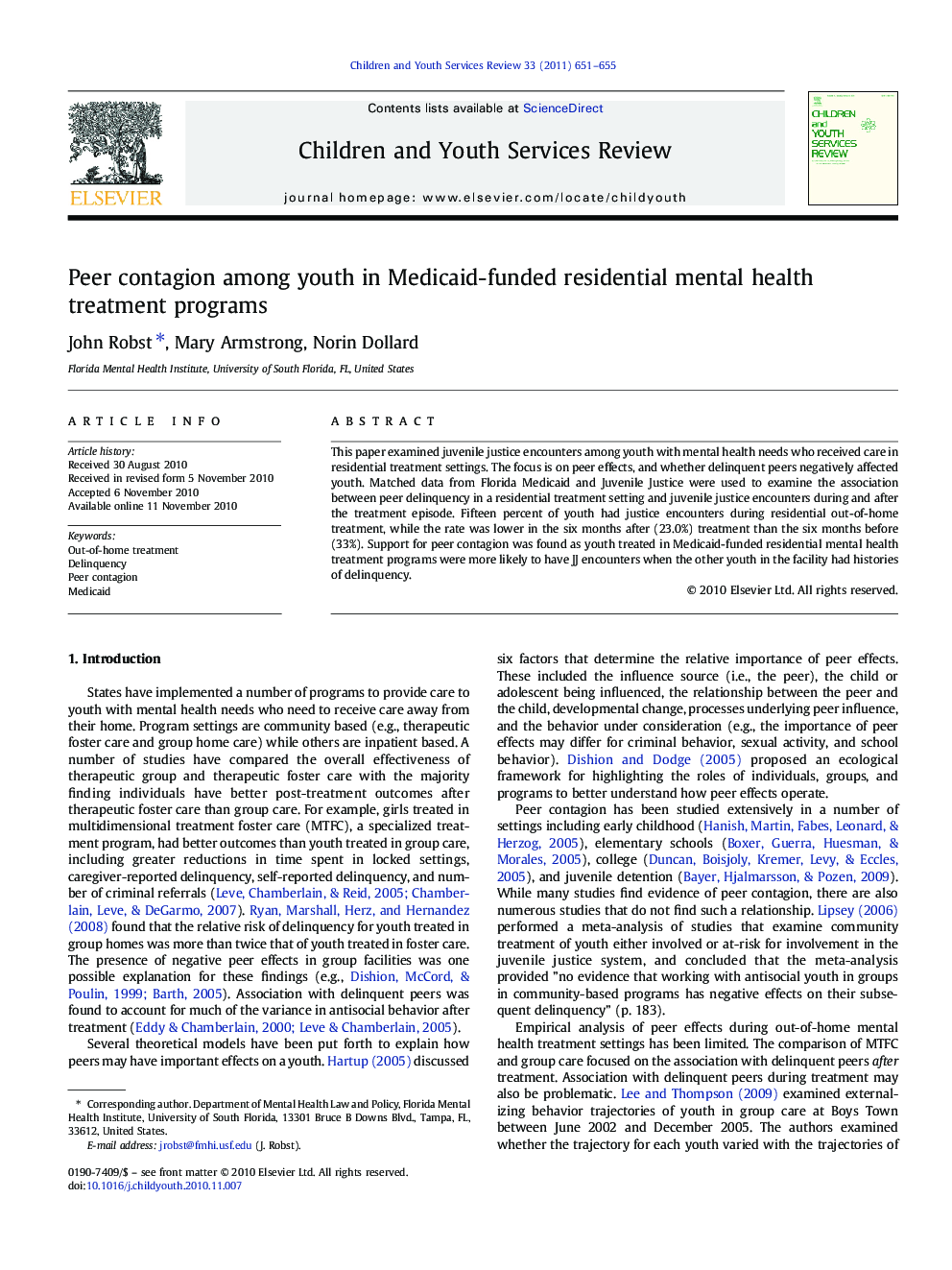| Article ID | Journal | Published Year | Pages | File Type |
|---|---|---|---|---|
| 346334 | Children and Youth Services Review | 2011 | 5 Pages |
This paper examined juvenile justice encounters among youth with mental health needs who received care in residential treatment settings. The focus is on peer effects, and whether delinquent peers negatively affected youth. Matched data from Florida Medicaid and Juvenile Justice were used to examine the association between peer delinquency in a residential treatment setting and juvenile justice encounters during and after the treatment episode. Fifteen percent of youth had justice encounters during residential out-of-home treatment, while the rate was lower in the six months after (23.0%) treatment than the six months before (33%). Support for peer contagion was found as youth treated in Medicaid-funded residential mental health treatment programs were more likely to have JJ encounters when the other youth in the facility had histories of delinquency.
Research Highlights► This paper examined juvenile justice contacts among youth with mental health needs. ► Youth received mental health care in residential treatment settings. ► Fifteen percent of youth had justice encounters during residential treatment. ► The rate was lower after (23.0%) treatment than before (33%). ► More JJ contacts occurred when peers in the facility had histories of delinquency.
